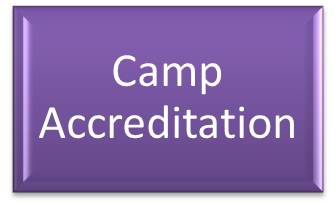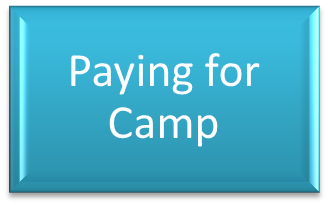Finding summer care options which meet your needs, your family’s budget, and your child’s interests can be overwhelming. These resources will help you navigate the choices, challenges, and opportunities that impact your summer planning.




Summer Camp Options
Search for Summer Camps at the American Camp Association website: http://www.acacamps.org
Summer care options
Evaluating summer care options
Use these resources as you are planning summer care for your child and preparing him/her for the upcoming change in schedule. This is especially important if this will be your child’s first camp experience or if you are making a plan that includes multiple camp programs; which is often the case.
Just as you did when you selected full-time care or after school care, you will want to consider various elements of summer care. This may include staff training, nutrition, activities/ curriculum, transportation, safety, and your family budget. Include your child in the assessment process so that you both will be satisfied with the final arrangement selected.
These resources are intended to assist you with:
- Understanding the options for summer care
- Surveying your child’s interests
- Evaluating various programs of interest
- Preparing you and your child for camp or a change in routine
If your teen is spending any time at home alone this summer, it is worthwhile to begin preparing now, from creating a safety plan to doing a trial run. In the
Teens and Summer section, you can get ideas on how to help your teen have a productive and fun summer at home.
Take a few moments to write your to-do list, using the sample
Summer Camp To-Do List (PDF, 59KB) as a framework.
Enriching Summer Programs Come in Many Forms
Enriching summer programs are available through many types of organizations, enabling children to have fun and explore at their own pace. Perhaps you want your child to participate in a variety of tasks or focus on improving performance in a specific area. In any case, you want your child to be cared for in a safe environment. About 80% of summer camps are operated by non-profit organizations. Some are accredited. When researching the various care options, consider the types listed below.
Family Child Care or Center
You might continue the relationship with your current care provider if possible. In this situation, there will be less adjustment for your child and transportation may be less difficult for you. Ask if there will be new children and other children of similar ages. The program will likely be less structured than care during the school year. Ask about special summer activities.
Summer Buddy
A Summer Buddy is a mature teenager or college student who comes to your home to provide supervision, companionship and transportation to and from activities. Or you could set up a co-op arrangement with neighborhood families. While typically less costly than a formal program, this type of care is not regulated. Consider a caregiver who is CPR/First Aid certified.
Traditional Summer Camp
A traditional summer camp is one that offers a variety of activities, like outdoor recreation, arts & crafts, individual & team projects. Kids usually select their favorite activities and do a lot of it. It’s great for children who love to do many different types of things.
Educational/Academic Camps
Some programs have an academic focus, such as science or language. The emphasis is on both knowledge and fun. Activities are self-paced, and may be project-oriented.
Specialty Camps
Many camps have focused instruction on one activity, like dance or basketball. These camps are geared towards children who desire to improve performance. Consider it if your child is very motivated in and can concentrate on one thing for long periods.
Special Needs Camps
A special needs camp promotes inclusive and a “can-do” attitude amongst campers. Staff are specifically trained and the camp is specially equipped. There will be a range of camp activities tailored to ability and opportunities to interact with other youths.
Resident/Sleep-Away-Camp
Some kids may desire a sleep-away-camp, where they stay for a week or month at a time, under the supervision of adults. The specific camp may offer traditional or specialized activities. Camps may provide leadership opportunities for older kids.
Return to Top
Obtain information on at least 3 to 5 different programs before making a decision. While you can get a lot of information on the camp’s website, also talk to the camp director and check references. Ask for referrals from other parents, teachers and co-workers.
Consider the following questions:
Program Activities
- Is the camp accredited by ACA?
- Do the hours fit your schedule?
- Is extended care available?
- May parents visit during the week?
- What is a typical day like?
- What types of activities are planned?
- Are there different choices each day?
- How competitive are the activities?
- Are campers separated by age?
- Is there swimming? Lessons?
- If food is served, what are the typical meals like? Should I send snacks for my child? Is there refrigeration?
- Will the camp cater to a child’s specific needs?
- What is the camp’s policy when a child is sick or has an accident?
- How are requests to call home handled?
Facility/Fees
- Does the camp meet health and safety standards?
- Is the facility well maintained and clean?
- Are there enough materials/equipment?
- Is the outdoor activity area sufficient?
- Is the indoor space adequate for children during rainy or very hot weather?
- Do the rooms have air conditioning or should my child bring a fan?
- Does the camp provide transportation?
- What are the pick-up and drop-off times?
- Are there additional fees for swimming, t-shirts, field trips, food service?
Staff
- What are the staffs qualifications?
- Has the staff received special training?
- Does the Director have a background in proving summer programming?
- What is the Director’s camp philosophy?
- What is the staff to camper ratio?
- Does the staff have CPR and First Aid certification?
Evaluating a Camp
When you receive a camp's brochure, you will invariably have questions. From that first phone call or letter, you begin developing an impression of what a particular camp is like and how it's run.
To further assess the quality of the camp, get to know the Camp Director through telephone conversations, correspondence, and a personal visit.
Remember that no institution has an impenetrable safety net from accidents. However, you can find out if the camp has taken all reasonable precautions to provide an environment that makes safety for children the top priority.
Return to Top
When choosing a Camp, another factor to consider is whether or not the program is accredited. According to the American Camping Association (ACA), there are about 12,000 camps programs in the US and roughly a quarter of them are accredited.
Accreditation demonstrates a camp’s commitment to a safe and nurturing environment. Accreditation means that camp practices have been measured by going a step beyond the state's basic licensing requirements. Accreditation is voluntary. It is an educational process that involves training and implementing guidelines, as well as ongoing publications for camp directors and staff.
ACA accredits camps; its standards are recognized by courts of law and government regulators as the standards of the camp industry. ACA collaborates with experts from the American Academy of Pediatrics, the American Red Cross, and other youth-serving agencies.
No environment is risk free. However, ACA camps go through a rigorous risk management process to prevent illness or injury to campers–and have solid crisis plans if an emergency does occur. At least once every three years, an outside team of trained professionals observe the camp in session to verify compliance with ACA standards. Standards cover all aspects of operation, such as:
Site & Food Service Safety: Fire protection, sleeping areas, bathing/toilet facilities, food areas and practices
Transportation: Driver and vehicle requirements, traffic control, transportation safety
Health Care: Staff and facility requirements, medication management, required health information, record keeping
Management: Safety and security regulations, staff emergency training, crisis communications, insurance
Staffing: Staff qualifications, training, ratios, supervision and behavior management guidelines
Program: Goals for camper development, orientation and policies for general and specialized programs, including aquatics, challenge courses, trips, and horseback riding
There are approximately 300 standards. View the 2012 standards at a glance at:
An ACA web tool allows you to search over 2,400 ACA-accredited camps:
Return to Top
The opportunity to go to Summer Camp is special. Children have the chance to make new friends, discover new interests and learn valuable life skills. While it is a great experience for children, it may not be easy on the wallet. Camp costs can add up quickly. Fees range from $75 to more than $500 per week depending on the type of camp, supplemental activities and options, such as before and after camp care. It is important to plan ahead and consider your family’s budget. Here are a few ways to curb the costs.
Ask about Financial Aid/Scholarships– No matter your income level, it is fair for a parent to ask ‘what type of financial assistance do you provide?’ Most camps offer “camperships” or scholarships that may cover a portion of the camp fees.
Send siblings to the same camp if possible– A sibling discount can reduce costs by 5 to 15%.
Enroll early– Some camps offer a discount if you enroll early or for multiple sessions. Plan in advance- sessions fill up fast!
Try to enroll in local day programs– Camps that require an overnight stay, taking a plane or train cost significantly more.
Resist the urge to splurge– Most camps will recommend that you provide play clothes, swim trunks, towels, etc. Don’t go out and buy new things unless you absolutely must.
Find out your camps refund policy– Sometimes your plans change or simply don’t work out. Most camps will give you a full refund if you cancel before a certain date.
Pay in advance– Camps may offer a discount for paying the full balance before the sessions begin.
Payment options– Camps want your child to have a great experience with them and are willing to work with you. Ask if they are willing to set up payment arrangements.
Take advantage of a canteen fund– Some camps allow you to deposit money for your child into a fund to be used on snacks, drinks, ice cream, etc. Depositing a certain amount weekly and not going over, will allow you to keep track of costs.
Two additional ways to make camp affordable:
-
Take advantage of your Flexible Spending Account– Some employers offer a benefit program which allows you to pay your dependent care expenses with pre-tax dollars. Expenses for summer day camp may qualify if the camp meets certain criteria. Check with your employer or go to
www.fsafeds.com
-
Child Tax Credit– when filing your taxes find out if you qualify for the Child Tax Credit. The Child and Dependent Care Tax Credit reduces your taxes by providing a tax credit for money you spend on day care and child care services.
Return to Top
A new program involves an adjustment. Summer is a fun and exciting time for children of all ages. It is an opportunity for children to strengthen their athletic and intellectual skills, to meet new people, and to promote and foster their independent spirit. Your help with summer camp preparation will positively impact your child’s experience.
The following are some preparation guidelines:
Prepare together: From choosing the camp to packing their bag (even if it is a day camp), it is important to support your child through the process. As you prepare, allow them to express their concerns and communicate your confidence in their ability to handle the situation. Try reading a book about a camp experience to help your child open up about their uneasiness. Talk realistically about the expectations for camp. It is normal for campers to experience homesickness for the first few days of camp until they make friends. Make a plan to keep in touch. If possible, visit the camp in advance to familiarize your child with the environment.
Activities: Know the activities that your child will be participating in during the camp. Pack necessary items such as a swimsuit, beach towel, sunscreen, an extra set of gym shoes, reading glasses, spending money, etc. Explain the activities to your child and the items you packed for him/her to enjoy.
Clothing: Whether your child is attending an overnight camp or a day camp, be sure to clearly mark all clothing and personal items with the child’s name. Do not allow your child to pack or take valuable personal items that would be unnecessary in the camp environment. Always check the weather forecast to have your child appropriately and comfortably prepared.
Medications: As the parent or guardian, please work with the camp nurse or health office to ensure that all medications are administered properly. It is also important for you to know the camp rules regarding medications, and to follow them appropriately.
Food and Drink: Always check with the camp about how meals are handled. Does the child bring his/her own lunch or does the camp provide the meals? What about morning or afternoon snacks and drinks? If your child is a picky eater or on a special diet, should you make other arrangements with the camp? Can your child bring a water bottle every day?
Return to Top
If you think your older child is capable of caring for himself or herself for some portion or all of the day during the summer, a self-care situation may be suitable to meet for your family’s needs.
There are minimum age requirements, as young as 8 years or as old as 15 years, for legal self-care that vary from state to state and county to county. Many counties specify the amount of time that children of various ages can care for themselves, as well as age requirements for staying home with other children. To find out the requirements in your county, refer to your county Department of Health and Human Services.
It is necessary to prepare your child for a self-care situation in advance, even up to 2 years. You must carefully consider your child’s readiness and asses your child’s ability to consistently perform important tasks.
Self-care situations may be appropriate for an older child who:
- Is able to assume responsibility for self and has cared for themselves at other times during the year
- Knows first aid and has personal safety skills
- Demonstrates maturity and problem-solving ability
- Uses good judgment and talks to you about problems
Your child must be able to:
- Follow safety instructions and responsibilities according to your directions
Lock and unlock doors and windows - Answer telephone calls and write messages
- Get a snack and drink for themselves
- Handle minor problems that arise, but know when to ask for help from an adult
Other considerations:
If you have more than one child, consider how well they get along together.
Develop the “home alone” rules with your child’s input and post them in the house.
Consider asking your child to sign a “home alone” contract to add impact.
Before allowing your child to stay home alone this summer, consider if your neighborhood is generally safe and ensure that you are reachable by phone and there are other adults nearby who could help.
Additional Resources:
Lunch and Learn Parenting Seminar: Home Alone: Are you and your child ready?
This seminar and handouts are archived and available at:http://www.ors.od.nih.gov/pes/dats/childcare/Pages/parent_seminars.aspx
What Can Teens do This Summer?
It can be challenging to find appropriate activities to keep your teen busy during the summer months. They may want to hang out with friends or be home alone. You can help ensure that your teen has fun this summer, and at the same time, be safe and productive.
Start by meeting with your teen and brainstorming the possibilities. Explain the different options they have available to them at this stage in their life. The most common things for teens to do during the summer are attend specialty camp, volunteer, and work. These will take up a good amount of time and you then can discuss some filler activities, such as, vacations, sporting events and visiting with family. Below are some suggestions to help your teen have a meaningful summer.
Camp– There are many camps specific to teenagers’ interests, such as, music camps, drama camps, chess camps. Some camps also provide the opportunity to be a Counselor-in-Training (CIT). While this is an unpaid position, it provides teens with the chance to obtain the leadership skills required of a counselor. Camps begin accepting applications for CIT’s early in the year so plan in advance. Contact your local Department of Parks and Recreation or private Summer Camp.
Volunteer– There are always organizations in need of volunteers. Although a volunteer position is unpaid, the work experience gained from it may be useful in the future; volunteer work looks great on resumes, college applications and scholarship applications. Check your local shelters, hospitals, nursing homes and local camps. Your county website may have a list of volunteer opportunities as well.
Work– It’s a good idea to have your teen touch base with their school guidance counselor before the school year is over. Many organizations contact local schools when they are looking to fill open positions. Check local newspapers and temp agencies. Speak to neighbors and friends of the family; you will be surprised how many parents would love the idea of hiring a teen to provide tutoring to their younger children, house work, pet sitting, etc.
Here are a few job websites, your teen might be interested in:
http://www.gotajob.com
http://www.coolworks.com
http://www.teens4hire.org
http://www.snagajob.com.
There is a fee for some career websites, so make sure you discuss use of any sites with your teen.
The idea of having your teen home alone all summer with nothing to do can be bothersome. It is important that you take their opinion into consideration, research activities that are of interest to them and decide what is best for the entire family.
Additional Resources:
Lunch and Learn Parenting Seminars: What to do with your teen this summer and Family Fitness = Family Fun
These seminars and handouts are archived and available at:http://www.ors.od.nih.gov/pes/dats/childcare/Pages/parent_seminars.aspx